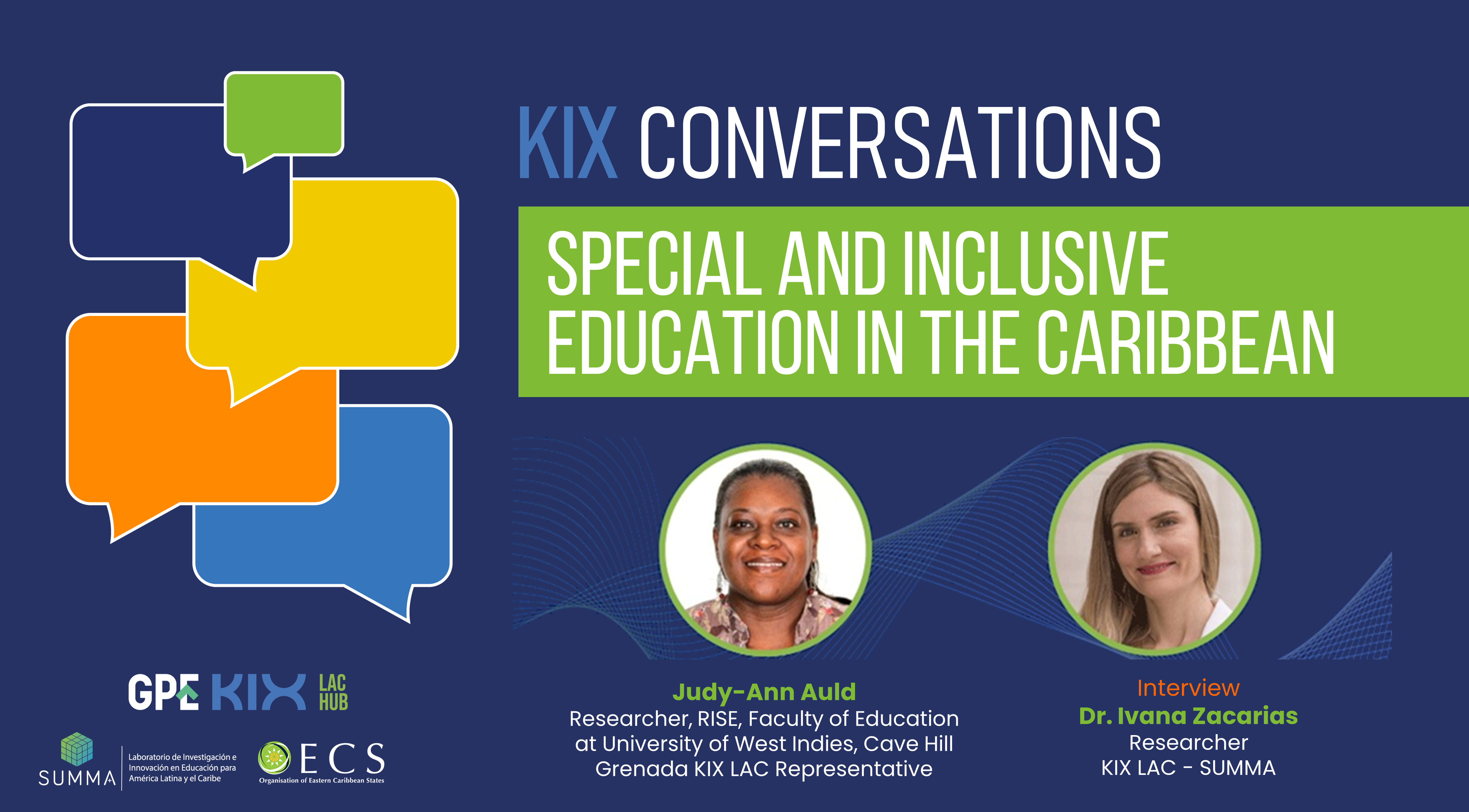
The twelfth edition of the KIX LAC hub’s KIX Conversations was attended by Judy-Ann Auld, RISE researcher at the Faculty of Education of the University of the West Indies, Cavel Hill Campus, who was interviewed by Dr. Ivana Zacarias, KIX LAC researcher.
The talk focused on the current situation of special and inclusive education in Caribbean countries. It highlighted the main challenges presented in the Global Education Monitoring (GEM) 2020 Report on the need to implement public policies, identify the specific needs of students with special needs, provide training and resources, and address inaccessibility in building infrastructure and lack of technology.
In 2016, General Comment No. 4 on Article 24 of the Committee on the Rights of Persons with Disabilities, described inclusive education as a “process” that should lead to a situation in which “all learners … have an equitable and participatory learning experience and environment that best matches their needs and preferences.” Likewise, the GEM report openly acknowledges that the shift to a world that values and welcomes diversity will not happen overnight. There can be a tension between teaching all children under the same roof and creating an environment where students learn optimally. Inclusion in education is a process.
In this sense, Auld states that the best way to face these challenges must be analysed. Ministries of Education must train not only the teaching staff but especially multidisciplinary work groups in schools, providing them with the necessary resources to implement strategies, tools and programs that promote inclusion.
Regarding the technological changes pushed by the COVID-19 pandemic and continuing classes outside the classroom, Auld declares that “technology is a very valuable tool for inclusive education. There are many programs and apps that teachers can use to reach all students and I think this is an opportunity to equalise opportunities for students with special needs.”
